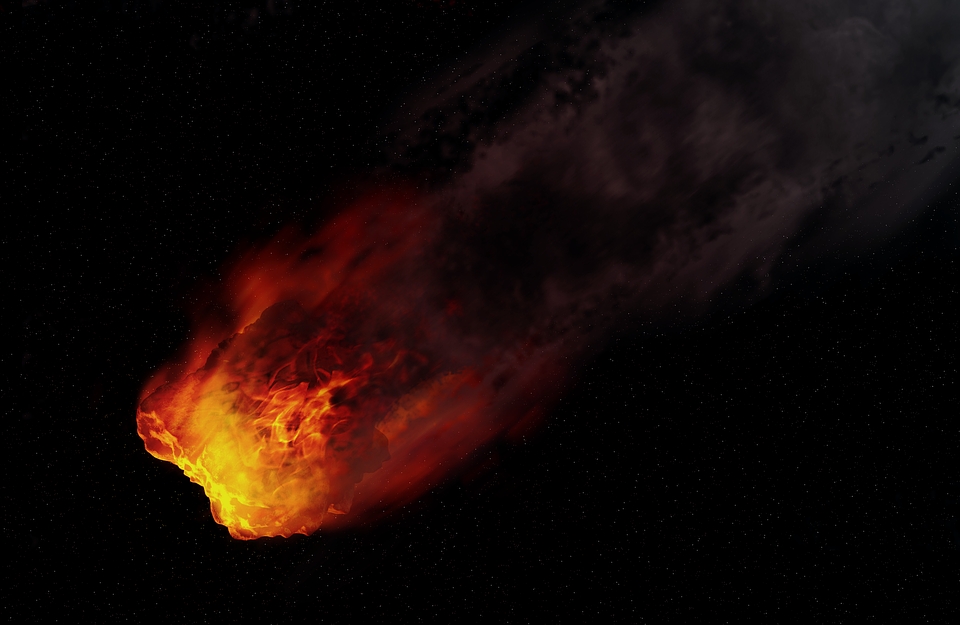Space agencies and other astronomers are already monitoring certain asteroids that have been predicted to have a chance of colliding with the planet in the future. With the asteroid Apophis predicted to crash by 2068, scientists have come together to discuss its potential collision.
Astronomers from the Lunar and Planetary Institute held a meeting to discuss the potential collision of the asteroid Apophis in 2068 through what they plan to do when Apophis first flies by the planet in 2029. It is in learning all they can about Apophis in this fly by that they can determine what measures to take for 2068. This follows the prediction of an astronomer at the University of Hawaii predicting that the 370-meter asteroid could still hit Earth due to a small Yarkovsky acceleration.
“This workshop will explore the dynamical details and corresponding science opportunities presented by the April 13, 2029 near-miss passage of the asteroid Apophis,” said the institute. “Knowledge is the first line of planetary defense and the 2029 Apophis encounter is a once-per-thousand year opportunity for investigating an asteroid as large as 350 meters passing within 6 Earth-radii.”
Apophis weighs 27 billion kilograms, and should it hit Earth, it could leave a crater measuring over a mile in diameter with a depth of 518 meters. The impact from Apophis alone would be equal to 880 million tons of TNT being detonated or 65,000 times more powerful than the nuclear bomb that was dropped in Hiroshima, Japan.
Dinosaurs have been the victims of an asteroid impact millions of years ago, but it also poses the question of what would have happened to this species should there have been no asteroid impact. According to a study from the University of Bath and the Natural History Museum, the dinosaurs may still be alive today had the asteroid missed Earth. By analyzing the data of several family trees of dinosaur species, they also developed models to see how every species lived before the asteroid hit.
They found that the dinosaurs were thriving, and will have continued to do so should there have been no collision. Certain species like hadrosaurs and the horned ceratopsians were found to do better than others when it came to coping.



 Could a telescope ever see the beginning of time? An astronomer explains
Could a telescope ever see the beginning of time? An astronomer explains  What is minoxidil, the anti-balding hair growth treatment? Here’s what the science says
What is minoxidil, the anti-balding hair growth treatment? Here’s what the science says  Why is the universe ripping itself apart? A new study of exploding stars shows dark energy may be more complicated than we thought
Why is the universe ripping itself apart? A new study of exploding stars shows dark energy may be more complicated than we thought  Tatahouine: 'Star Wars meteorite' sheds light on the early Solar System
Tatahouine: 'Star Wars meteorite' sheds light on the early Solar System  The rising flood of space junk is a risk to us on Earth – and governments are on the hook
The rising flood of space junk is a risk to us on Earth – and governments are on the hook  Spacesuits need a major upgrade for the next phase of exploration
Spacesuits need a major upgrade for the next phase of exploration  Alpha, beta, theta: what are brain states and brain waves? And can we control them?
Alpha, beta, theta: what are brain states and brain waves? And can we control them?  Customizing mRNA is easy, and that's what makes it the next frontier for personalized medicine − a molecular biologist explains
Customizing mRNA is easy, and that's what makes it the next frontier for personalized medicine − a molecular biologist explains  Dark energy is one of the biggest puzzles in science and we're now a step closer to understanding it
Dark energy is one of the biggest puzzles in science and we're now a step closer to understanding it  Larger and more frequent solar storms will make for potential disruptions and spectacular auroras on Earth
Larger and more frequent solar storms will make for potential disruptions and spectacular auroras on Earth  Six space missions to look forward to in 2024
Six space missions to look forward to in 2024  Why some people don't trust science – and how to change their minds
Why some people don't trust science – and how to change their minds  Archeoastronomy uses the rare times and places of previous total solar eclipses to help us measure history
Archeoastronomy uses the rare times and places of previous total solar eclipses to help us measure history 






























